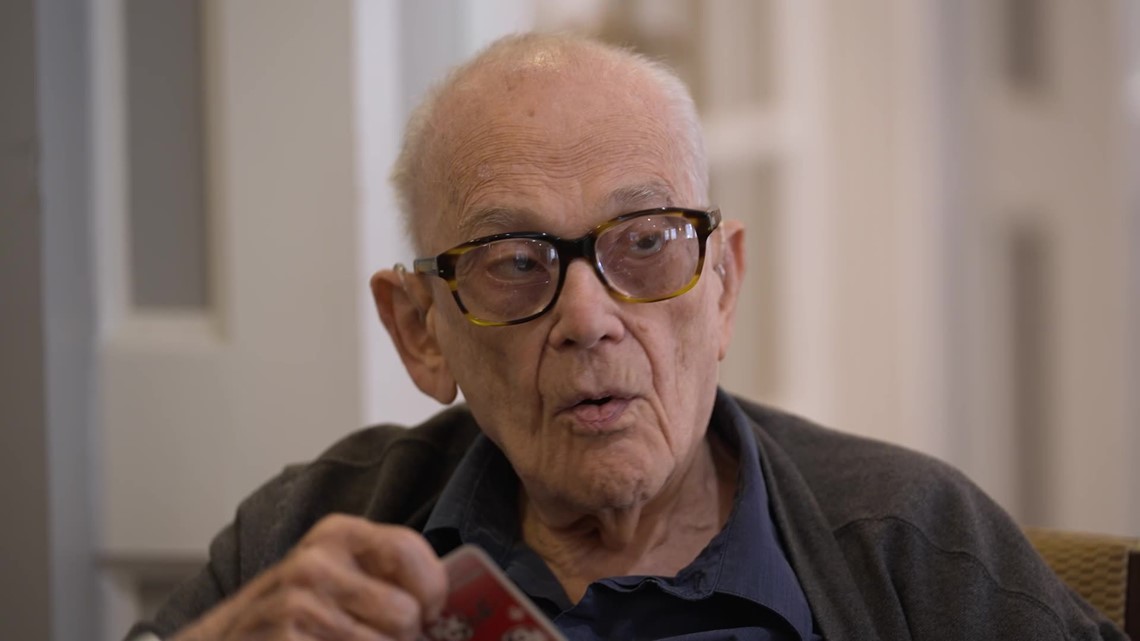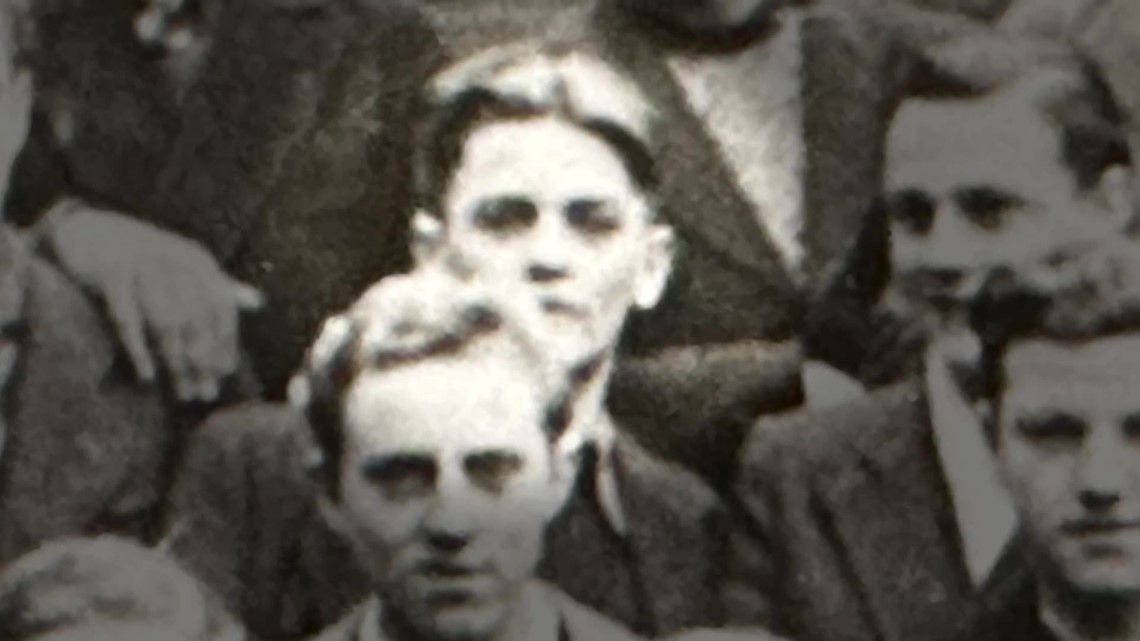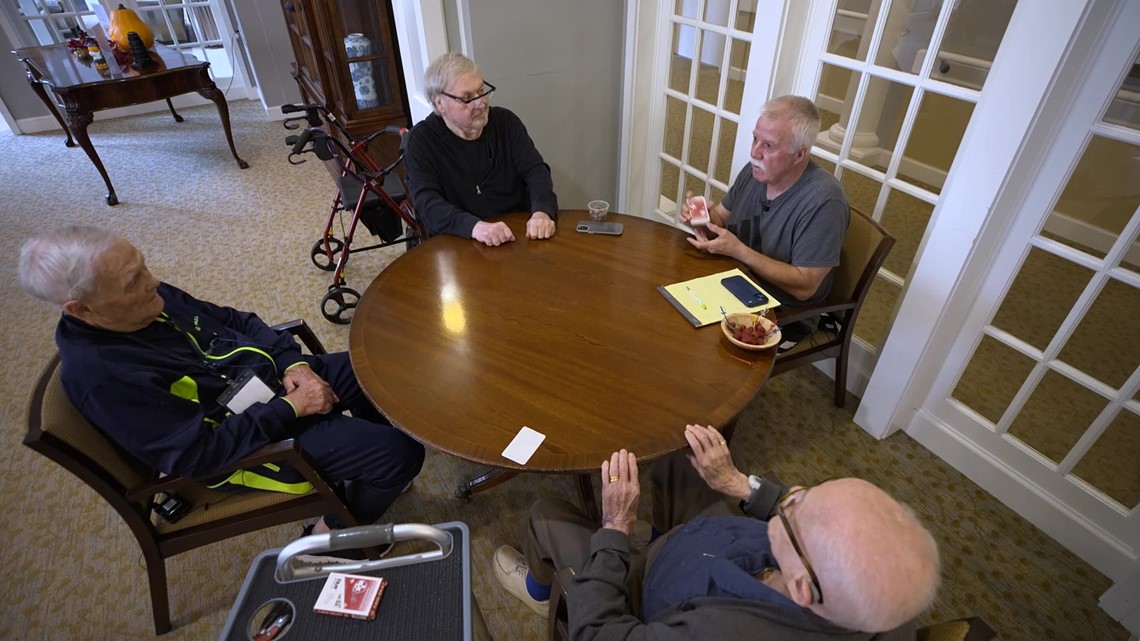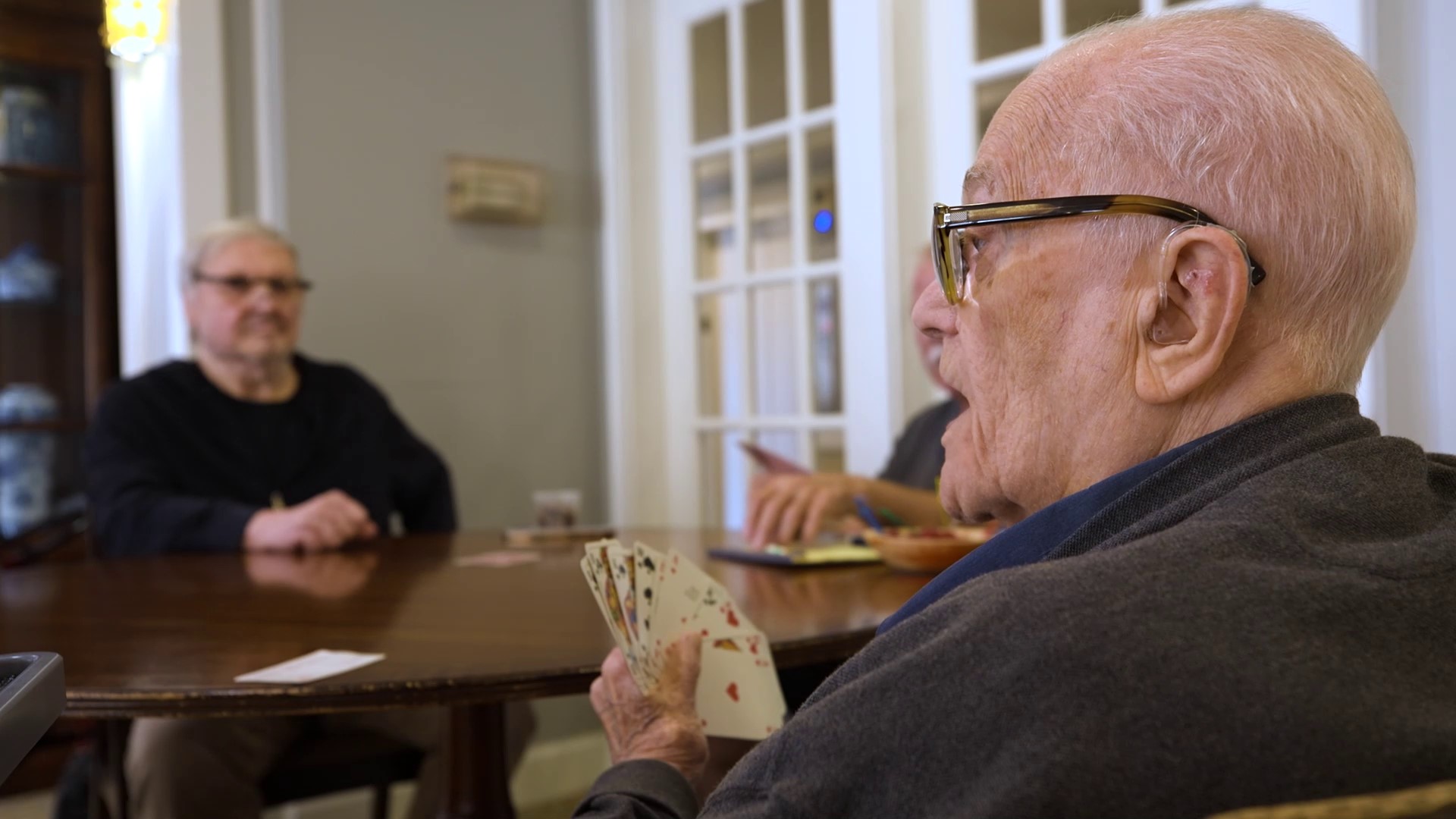DALLAS — Every Thursday, four friends gather around a table at a senior living facility in Dallas for a ritual rarely repeated anywhere else in Texas -- or the country, for that matter.
“He likes to get his butt kicked,” said Roman Thelen, 74.
Trash talk comes with a lot of games, but this one is different.
“Yes, I think we are the only ones who play in this country -- because I don’t know anybody else who plays Skat,” said Lawther Kaemper, 80.
Skat is a card game. Pronounced correctly, it sounds like “scott.”
“We play once a week for two and a half hours,” said Walter Levy, 101. “It’s the best therapy.”


The game requires a special deck. Each player gets 10 cards. One deals, and three play.
“I tell you what, there’s not many around that still know how to play because you have to remember what they played,” said Karl Kuby, 91.
Skat is as old as poker, and dates back at least 200 years.
“Poker is much easier with two cards,” Thelen added.
The game, like these guys who play it weekly in Dallas, are all originally from Germany.
“I heard about it and had seen it in Germany, but I didn’t play until coming over here,” Levy explained.
Levy is a Holocaust survivor and organizes these each week.
“Walter is making me rich,” Kuby joked after winning a round.
He is the founder of the famous German sausage house in Dallas which bears his name. Kuby said he first learned Skat as a boy, hiding underground in the bomb shelters during World War II.


"We had nothing else to do," Kuby said. "They were dropping bombs on the city. We were about 400 feet below the ground, so we played cards – there’s two or three other cards [games]. We didn’t play for money. We played for apples, something to eat."
Lawther Kaemper grew up in the west, near Dusseldorf.
“I was a little boy and we played in front of the houses, on the steps of the houses,” he said.
Roman Thelen has played for 60-years.
"I won," he said.
"We gave up," Kuby replied.
None of this is about bragging rights. They play Skat now for a sense of nostalgia, a loose connection with their childhood home.
Problem is, as with many card games, younger generations would rather play video games than pick up a deck of cards. Because of that, Skat appears to be fading into history.
“We’ve been playing here for a long time,” Thelen explained.


What happened to the other players?
"They all died out," Thelen said. "[We had] three tables, and every table was four [players]. But we’re the last four.”
A handful of German natives in Houston still play Skat, these players hear. But there, too, the number of players has dwindled over the years.
Still, once a week, Walter, Karl, Roman and Lawther wager pennies, share stories, and easily fall back into their native language while clinging to a piece of the past.
They’re determined to keep Skat alive -- for as long as they are.

